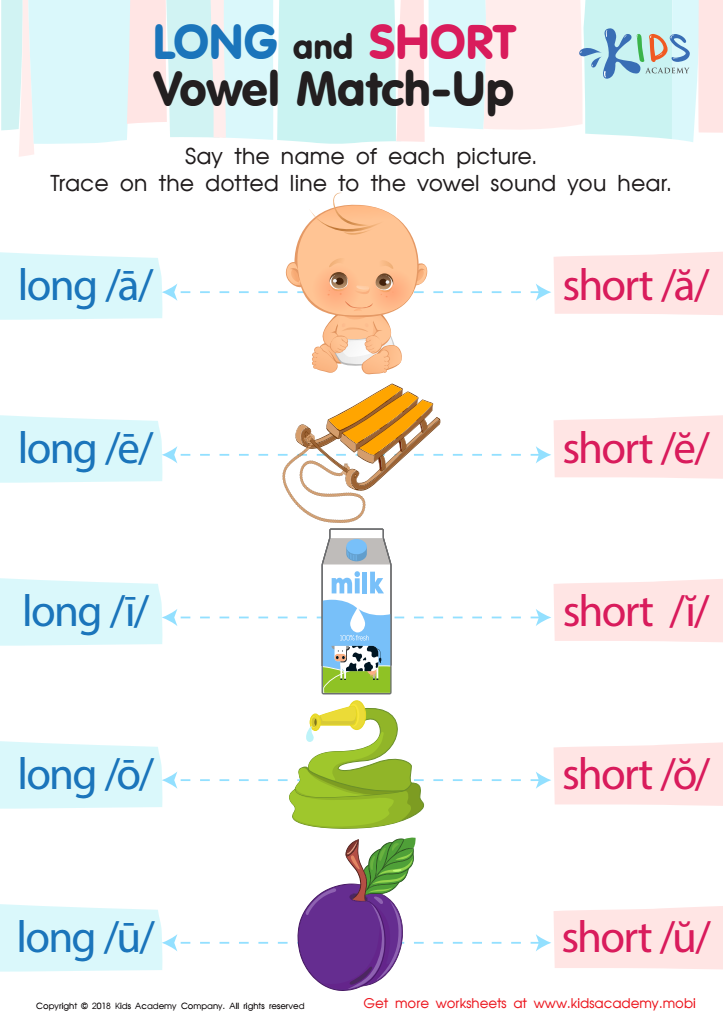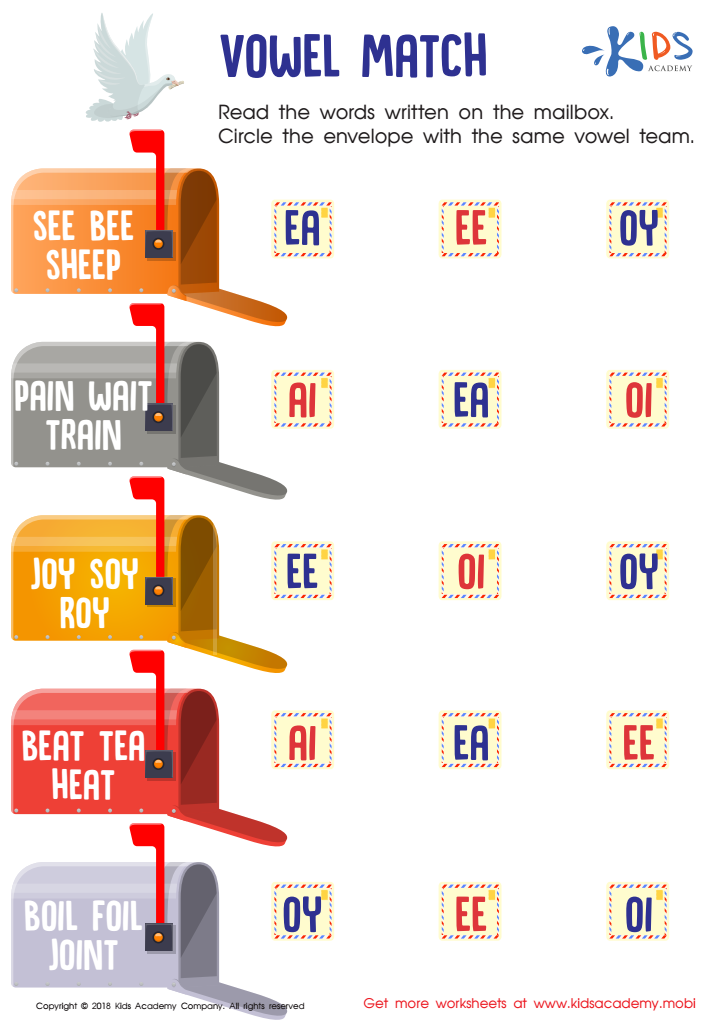Reading Skills Vowels and Consonants Worksheets for Ages 3-8
3 filtered results
-
From - To
Enhance your child's reading skills with our engaging Vowels and Consonants Worksheets, specially designed for ages 3-8! These printable activities promote early literacy by helping kids recognize, differentiate, and utilize both vowels and consonants. Featuring colorful illustrations and fun exercises, our worksheets make learning enjoyable while reinforcing foundational reading concepts. Perfect for parents and educators, these resources support classroom or home learning environments. Watch as your little ones gain confidence in their reading abilities and develop essential skills for a successful academic journey. Start their reading adventure today with our interactive and educational worksheets tailored to young learners!


Long and Short Vowel Match up Reading Worksheet


Vowel match Worksheet


Short Vowel Eggs Worksheet
Reading skills are foundational for children's academic success and lifelong learning, making it crucial for parents and teachers to emphasize vowels and consonants for ages 3-8. Understanding these basic elements of language serves as the building block for literacy. Vowels and consonants together form the words that children will encounter in books, signs, and everyday communication, making it essential for them to recognize and articulate these sounds.
At this developmental stage, children begin to make connections between letters and their corresponding sounds, a process known as phonemic awareness. Mastery of vowels and consonants enhances children's ability to read simple text, spell words, and, ultimately, craft their own sentences. Engaging in activities that promote vowel and consonant recognition—songs, games, and interactive storytelling—fosters a love for reading while enhancing cognitive development.
Additionally, strong reading skills contribute to better performance in other subjects like math and science, where comprehension is critical. When parents and teachers collaborate to support phonetic awareness, they lay a solid foundation for children’s future educational journeys, ensuring they emerge as confident, capable readers in a world that increasingly values literacy. Cultivating these skills is not just beneficial; it’s essential for shaping children’s futures.
 Assign to My Students
Assign to My Students














